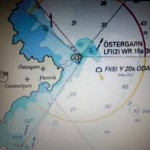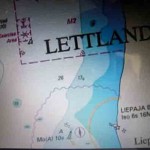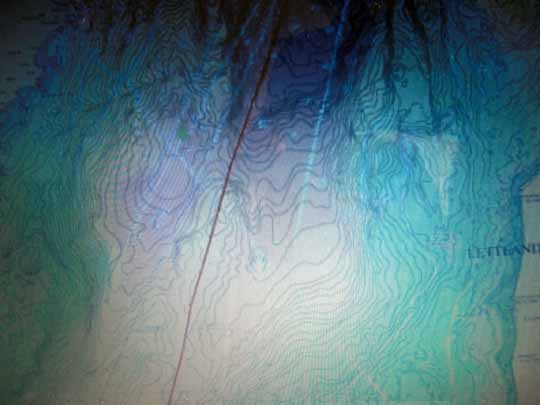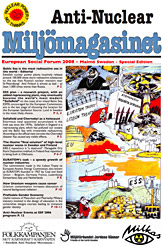Dumped waste
Russian Nuclear Waste between Swedish island Gotland and the Liepaja coast of Latvia
 Watch a 1 h swedish whistle blowing report video, Uppdrag Granskning nr 4:
Watch a 1 h swedish whistle blowing report video, Uppdrag Granskning nr 4:
A rough translation of an environmental newsmagasine´s followup article 4 Feb. 2010 – http://miljoaktuellt.idg.se/
Russian Nuclear Waste near Swedish island Gotland
Rolf K Nilsson: “This is why the greatest environmental scandal of the Baltic Sea was kept secret”
On the 3rd of February a Swedish public tv documentary revealed that Russia as late as in the 90es dumped nuclear waste and chemical weapons near a Swedish island and that the social democratic government did not act upon this information. Rolf K Nilsson, (moderate, rightwing) member of the Swedish governments Defence Oversight Board and from the very same island, now claims that the scandal was blacked out for political reasons.
Top Secret reports from the Defence dptm shows that Russia during the period 1991 to 1994 dumped nuclear waste and chemical weapons just outside the Swedish island of Gotland.
According to the tv program (Uppdrag Granskning) the dumped materials came from the biggest Soviet naval base at the Baltic Sea, Karosta, in Latvia. The Defence dptm informed several branches of authority (Security police, Defence Radio surveillance, Customs, Inspektion of Strategic Products and the Secret Service of the Military, Must).
None of these did act upon this information. According to the department of Defence, it would be “too expensive” to start an investigation of a large area of the Baltic Sea. [Editor´s comment: actually the dumps have been pinpointed to two specific, limited locations].
Professor of environmental law at Stockholm University, Jonas Ebbesson, is critical of the lack of response. “It is entirely a different matter for this to occur in the 90es, than if this went on in the 40es or 50es. At that time there were no international conventions and environmental conserns didn´t have the focus which it got during the 60es and 70es”.
Rolf K Nilsson writes on Newsmill, that “Ten years later the Swedish government (of G. Persson, soc-dem) learns about the dumping. But appearently chooses to keep quiet! The big, unanswred question is, Why? However I try to look at it, with the information that I now have, I can only conclude that the Swedish government didn´t want to upset Russia, and didn´t want to come forward with any unpleasant reminders of the inheretance Russia volountarily accepted after the Soviet era.” So what could be the worst environmental scandal in the Baltic Sea ever, was quited for political reasons.
Rolk K Nilsson doesn´t think that putting the blame on somebody should be the priority right now. The work of locating the dumped containers and identifying their contents has to be started immidiately. (end of article)
Editor´s, Per Hegelund´s, additional comment: This comes as no big surprise – even Sweden used to dump nuclear waste in the Baltic Sea. And 300.000 tonnes of chemical weapons were dumped there after the Second World War mostly by order of US and UK. And even today Swedish nuclear facilities give radioactive releases to the Baltic Sea on a level ranging from 100.000 (Forsmark and Oskarshamn) up to 100 million times (Studsvik) more than the the Russian reactors at Sosnovy Bor! Talk about present day scandals: Sweden (and copycat Finland) have both come up with the same insane proposal, as to a location for their most dangerous spent nuclear fuel: put it at the world´s allready most radioactive sea!
And not one neighbouring BSR country´s comfortably corrupt politicians make use of any of the international conventions, which gives them the right to prevent this! There are only a couple of months left for any of the neighbouring countries to file their objections, according to UN´s Espoo Convention (and a bunch of other international laws as well). If not, it will be irreversibly too late, and the Baltic Sea will remain a radioactive cesspool for ever.



